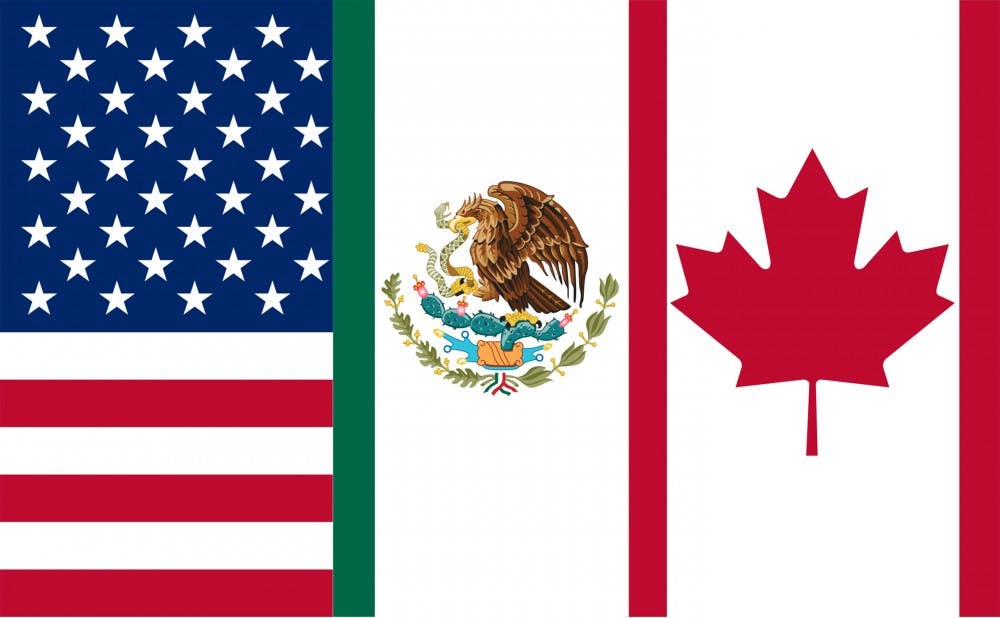After a year-long negotiation, the United States, Mexico and Canada agreed Sunday on a revised version of the North American Free Trade Agreement, or NAFTA.
The new trilateral trade deal, now called USMCA—short for the United States-Mexico-Canada Agreement—included new rules to have more automotive parts manufactured in North America, to open Canadian markets to U.S. dairy producers, to improve labor rights and to increase intellectual property protections.
The deal will still have to be adopted by all three countries.
Trump championed the new trade deal in remarks at the White House, saying he followed through on his campaign promise to create jobs and generate profits for Americans.
Despite the changes, the new agreement is largely similar to NAFTA, said Frederick Mayer, public policy professor and the author of “Interpreting NAFTA: The Art and Science of Political Analysis,” published in 1998. According to him, the changes are “significant, but far from a radical overhaul.”
“The agreement—being hailed as a triumph for President Trump—is a good thing, but it needs to be seen not as a major departure, but as a modest revision that largely preserves the core,” Mayer said.
Under the new agreement, the Trump administration's tariffs on steel and aluminum imported from Canada will stay in place—at least temporarily. U.S. negotiators said that tariff issues will be addressed separately from a broader trade deal.
Trump’s attitude toward a trade deal among the three countries has shifted since his campaign in 2016, when he denounced NAFTA as the “worst trade deal ever.” On Monday, he said USMCA has "got a good ring to it.”
“Having portrayed NAFTA as a disaster [when] it wasn’t, President Trump now claims that he has rescued it,” Mayer said. “A good story, but wildly overblown.”
Given that the essence of the new trade deal remains intact, the recent renegotiation is not so much a transformation but rather a continuation of existing rules, Mayer said.
“If you thought that NAFTA was good policy then, and that it has, on balance, served us well in the intervening years, you should be happy that we have largely stayed on course,” he said.
Get The Chronicle straight to your inbox
Signup for our weekly newsletter. Cancel at any time.

